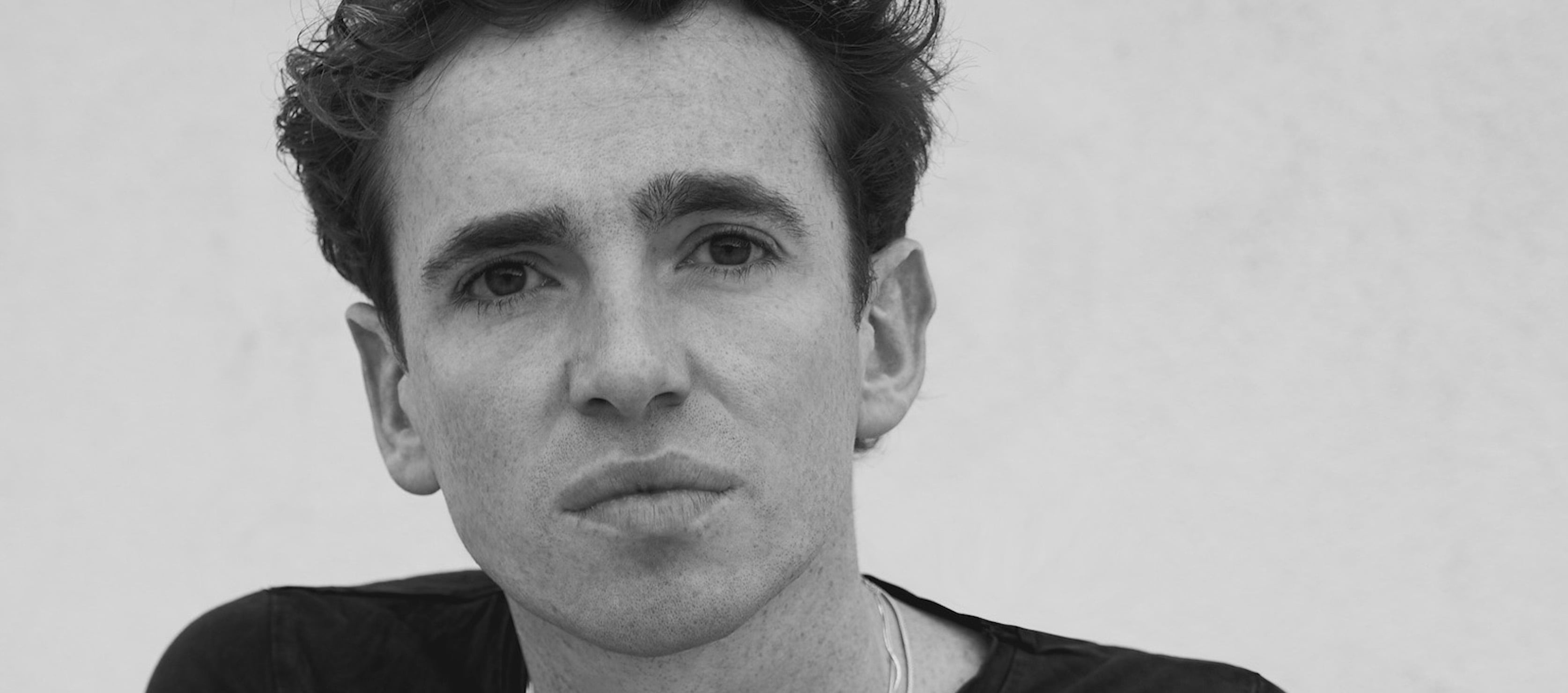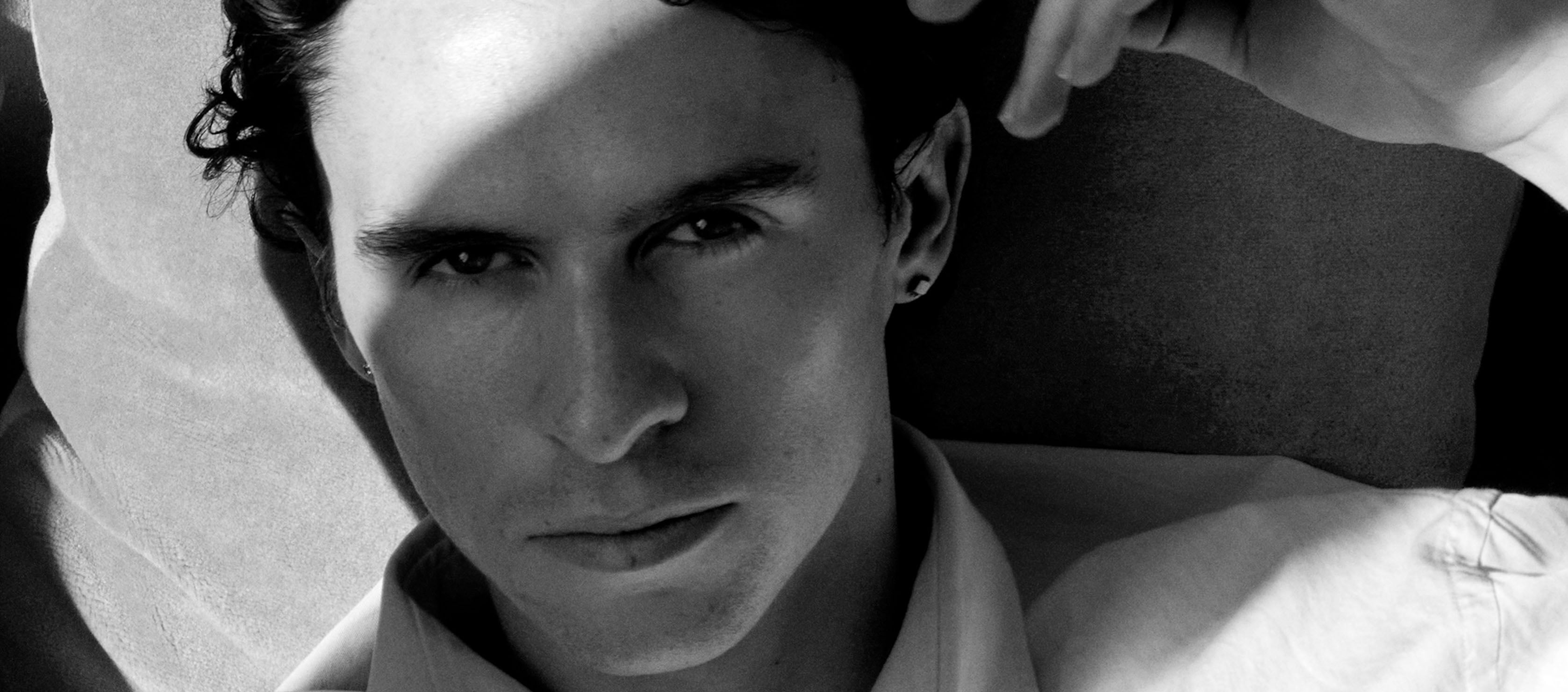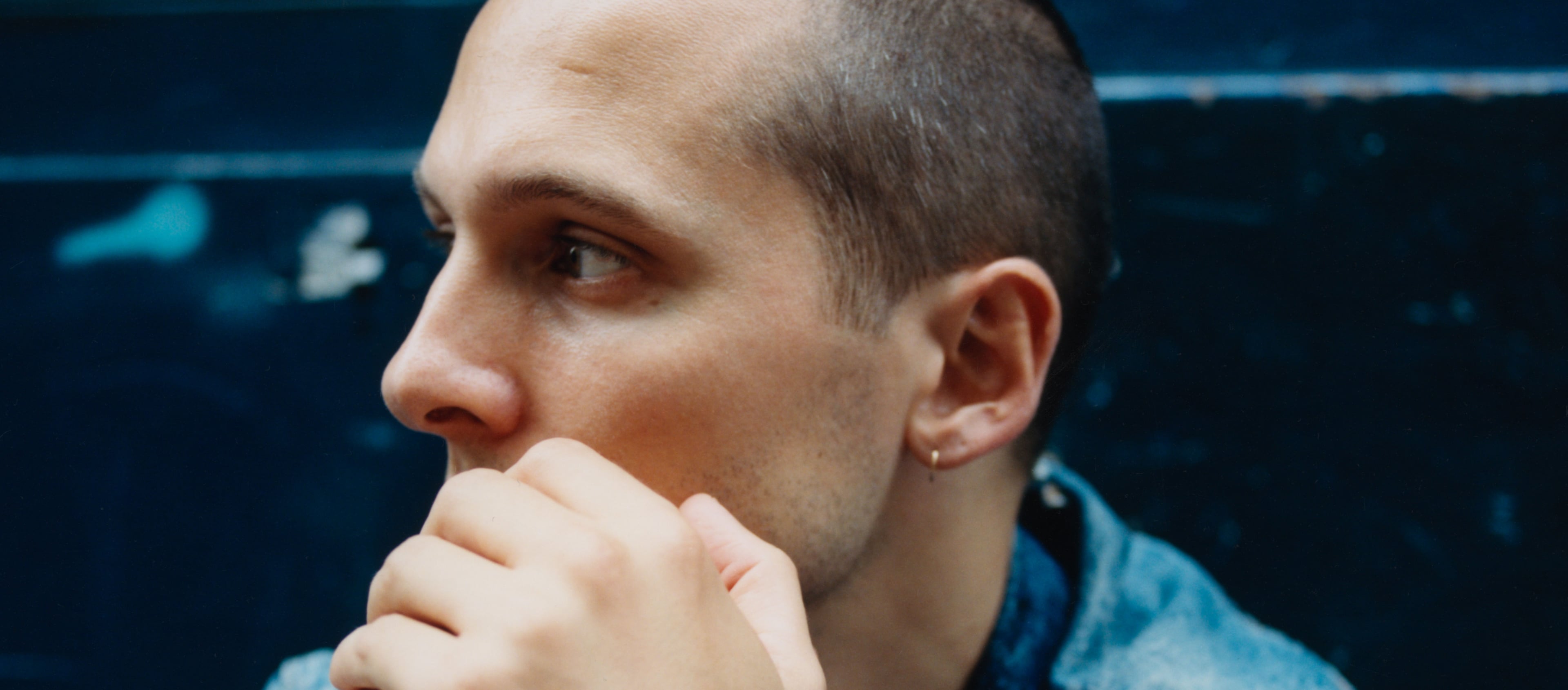Meet the Palestinian model fighting for a truly inclusive fashion world.
I am transcribing my conversation with Qaher Harhash in the British Library, where not one week earlier the model – the ‘first Palestinian male model’, as he’s been called – walked in Paolo Carzana’s show The Last Pangolin on Earth. This was one of four London shows 27-year-old Harhash appeared in this September – the others being Ahluwalia, MAINS, and HARRI – the most he’s bagged in one season in one city since he started working, almost ten years ago.
At the start of the season, he walked the GmbH show in Berlin, but as the SS26 run draws to a close, at the time of writing, he’s been cast in none of the other major fashion capitals. “Of course, it was London that gave me my flowers,” Harhash says. “People are a lot more bold there. Their balls are bigger and juicier!” He’s in Paris when we have our Zoom call, connecting between castings. He’s bundled up in a black neoprene hoodie with one knee tucked under his chin, a Palestinian flag pinned to the wall behind him. The closest comparison for Harhash’s looks might be the classical features in a Fayum mummy portrait – something he’s pointed out on his own Instagram. Imagine: almond-shaped Sanpaku eyes with feathery lashes, full cowlicked brows which knit together when he speaks, aquiline nose, and rosebud mouth with a beauty mark just right of the cupid’s bow. It’s the kind of soulful face you want to paint. His voice is animated, rushing through sentences at a mile a minute. He laughs a lot – he makes me laugh a lot. He’s bloody magnetic. Why the hell isn’t he booked and busy?
When we connect, we are a week shy of October 7th – marking two years since this harrowing latest phase of war in the Middle East accelerated. Before October 2023, Harhash appeared in Prada’s Ramadan campaign, graced the cover of Numéro Berlin, and shot campaigns with Dolce & Gabbana and Jean Paul Gaultier (the latter also featuring the half-Palestinian supermodel Bella Hadid). His star was on the ascent. But recently, the work feels like it’s drying up.
“I’m a risk,” he puts with a kind of resignation that anyone whose identity comes with so much political baggage will understand. “And people are afraid to be the first one to take that risk. Putting someone like me in a campaign could make an unintentional statement, draw attention to the wrong thing or upset shareholders.” Such is the weight carried by the almost singular Palestinian-born model in a global industry. “When people ask me where I’m from, the answer is always met with a gasp.” Whether empathetic or signalling suspicion – there’s an inescapable subtext.
For a while, he considered keeping quiet about his background, but his love for his culture was hard to mute. “Being Palestinian means waking up with the knowledge that your essence is poetic. With you comes the symbol of an olive tree, which lasts longer than empire. A culture which is built on survival. A hospitality which runs deep even in famine. We are joyful: through food, through storytelling, through art and in the way we care for each other. There’s the Palestinian idea of صمود (sumud) – that we are a steadfast people known for our resilience. For never wavering on morals or values. This is who I am. Accept me. Being Palestinian teaches you that nothing in this world matters if we can’t live freely and respectfully.”
To that end, and despite the constant, wearying challenges, Harhash channels his infectious passion into changing the landscape for other people, as a vocal advocate for more Arab representation in fashion. “My hope for the future is in the story, not in myself. Even if I never work again, I hope the fact that I have worked at all and laid bare the injustices I’ve seen means people like me get more equal opportunities, too. That’s more important to me than my own success.”
“I’m quite used to being the only Arab in the room when I go to castings,” Harhash admits. “When I first started, it was like Ahmad Kontar, Ali Latif and me. The Syrian, the Tunisian, and the Palestinian. Just the three of us. We would sometimes see each other at castings, but a lot of the time we wouldn’t see each other there. And that meant something too. There are other boys, born in France or the UK with Arab heritage – they have it easier, but they still don’t get as much recognition as those from other ethnicities.” But as he emphasises, the community may be small, but it is strong.“We really support each other. We all have to work really hard, so it’s important that we also keep an eye on what each other is doing and make sure we shout about it as much as possible.”
Besides modelling, Harhash has also recently stepped before a different kind of camera – starring as Bahlul in Stress Positions, Theda Hammel’s 2024 feature-length directorial debut, a hectic, Covid-set drama about a bunch of New York narcissists. Harhash was, he says, afraid of the script at first. He worried that Bahlul – a Moroccan model whose presence confounds the self-absorbed millennials he isolates alongside – was merely a device to force the film’s other characters to confront the limitations of their worldview. But it clicked into place when he realised that the bigger picture meant a movie critiquing Western liberalism. “I’ve met so many of these so-called liberal people, who believe in diversity, but, actually, I’ve learned a lot of them are not really who they say they are. Liberalism is being used as a curtain to hide a really rotten core. The reason I understood Bahlul was because I feel like there are so many times when I’m sitting in these rooms being told I’m ‘exotic’. Exotic might be a positive or a negative, but it always essentially means that person isn’t seeing you eye to eye.” Harhash’s Bahlul is sweet, subtle and disarmingly honest. For his next role, he wants to play a villain.
And what else is next? Right now, Harhash is reading Frankenstein for the third time (“I love transcendental, romantic and gothic fiction,” he tells me), getting his Arabic back up to scratch, and jumping rope. But his sights are set on big things. “I’m going to get myself an acting agent for starters, and then in the fashion world, the dream collaborators are Louise Trotter (Bottega Veneta) and Haider Ackermann (Tom Ford). There is so much depth to their work and so much storytelling.” And, whatever happens next in the world, “I have survival in my blood,” he concludes.
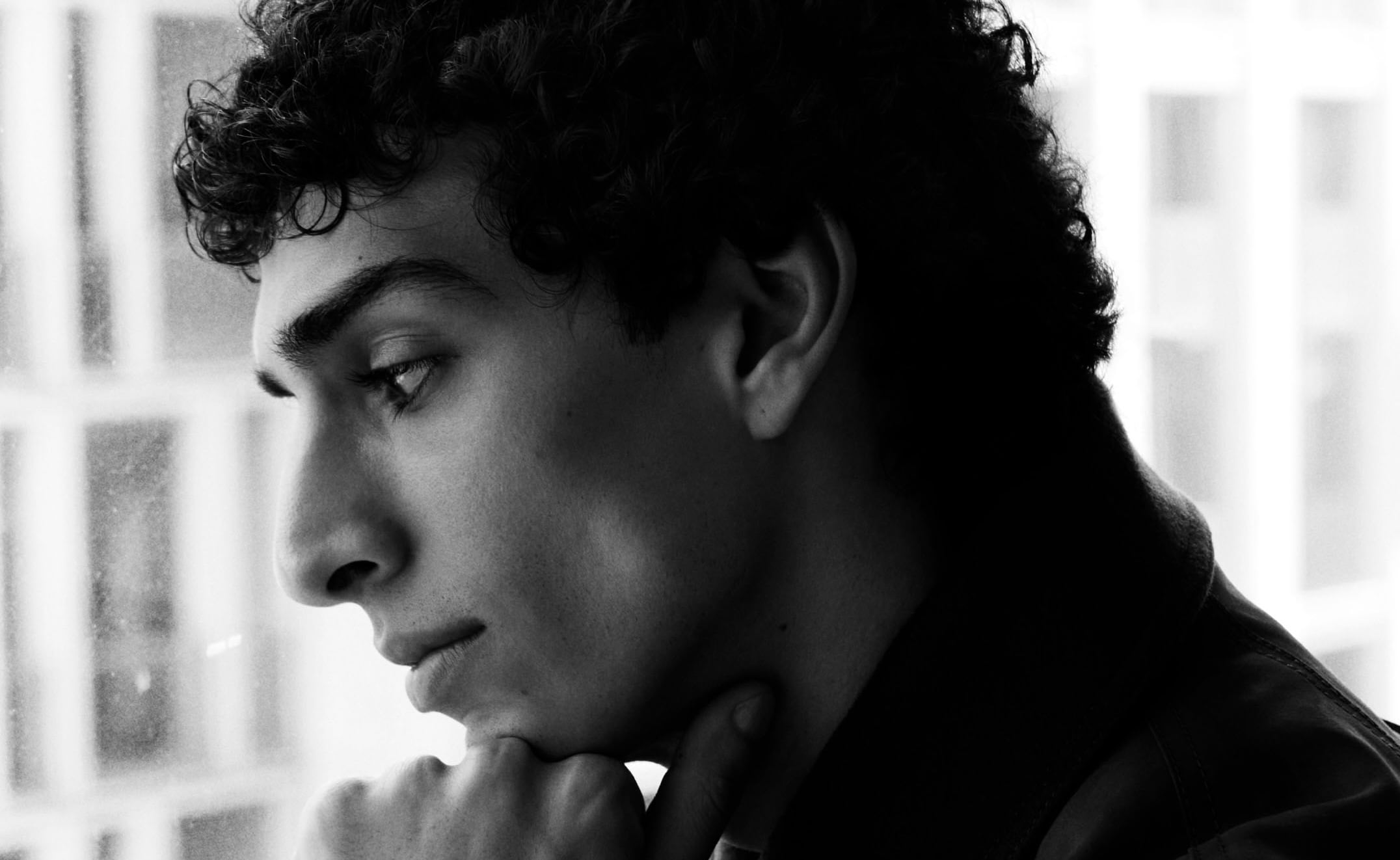
![Picture of “When We Were Developing Series [2], We Were Very Conscious Of The Live Debate About What It Means To Be British”: Tom Hiddleston On The Night Manager’s 2020s Comeback](/_next/image?url=https%3A%2F%2Fadmin.manabouttown.tv%2Fwp-content%2Fuploads%2F2026%2F02%2Fdigsfo-768x338.jpg&w=3840&q=85&dpl=dpl_AGxTZhdbwqa9qUnPAY7GXnNxbP7V)
![Picture of “[The Bridgerton Press Tour] Is Like Being On Some Sort Of Hallucinogenic Drug”: Luke Thompson Is Next In Line](/_next/image?url=https%3A%2F%2Fadmin.manabouttown.tv%2Fwp-content%2Fuploads%2F2026%2F01%2FLUKE-THOMPSON-hero-768x339.jpg&w=3840&q=85&dpl=dpl_AGxTZhdbwqa9qUnPAY7GXnNxbP7V)
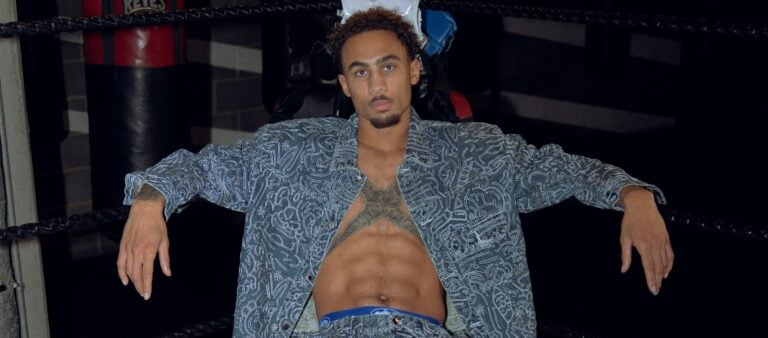
![Picture of “[Whether Photographing] A Dustman Or The Queen, I Will Try My Best – But, Naturally, The Queen Was A One-Off”: David Montgomery On Capturing Icons](/_next/image?url=https%3A%2F%2Fadmin.manabouttown.tv%2Fwp-content%2Fuploads%2F2025%2F12%2FDM-Hero.jpg&w=3840&q=85&dpl=dpl_AGxTZhdbwqa9qUnPAY7GXnNxbP7V)
